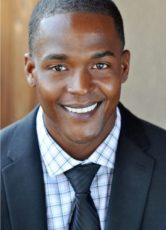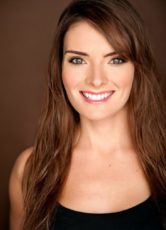
During their acceptance speeches, various actors have thanked acting coach Roy London for his contribution to their success, including Geena Davis when winning an Oscar and Sharon Stone when winning a Golden Globe. Garry Shandling made sure the final credit on each episode of “The Larry Sanders Show” read, “Special Thanks to Roy London.” But not many people know about Roy London because he preferred to fly under the radar—teaching in his living room and gaining popularity solely by word of mouth, and later working from a Los Angeles studio with no signage, listed phone number, or advertising. Those who were privileged to have worked with London were deeply impacted by his brilliant mind, guidance, keen insights, and wisdom. Sadly, he passed at the age of 50 in 1993.
With very little documentation of London’s coaching work, we’re largely left with the memories articulated by his students, many of which refer to London as a mentor. Those students include Brad Pitt, Michelle Pfieffer, Famke Janssen, Faye Dunaway, Patricia Arquette, Hank Azaria, Elizabeth Berkley, Jeff Goldblum, Patrick Swayze, Forest Whitaker, Lois Chiles, Louie Anderson, Landford Wilson, Drew Carey, and Juliette Lewis. In fact, a documentary called “Special Thanks to Roy London” interviewed many of these performers while attempting to capture the philosophy of the beloved instructor and the tools he offered his students. Here are some of the lessons they’ve shared:
Know what vegetable you are
One of London’s students, actress Lydia Nicole, studied with him for nine years. “Roy would tell actors all the time: ‘Learn how to be the best vegetable you could be and stop trying to be the whole salad,’” she recalls. “He would always say, ‘Just be the carrot or pick a vegetable. Be that vegetable. And then they’re going to want that vegetable all kinds of ways. But you’ve got to be that vegetable.’” Nicole summarizes that lesson to mean, “Be authentic in who you are, know what you sell, and take it out into the world fearlessly.” Another student shared what he learned from London’s classes: “Be myself. Just bring who I am to everything that I do. And bring the best me. And also make positive choices. Any time I was on television, Roy would call afterwards and give me a critique. And I remember distinctly when I did one show, he called me and said, ‘That’s what you play. Do that. You’re every man. And you’re going to have an incredible career in your forties. And he was totally right; in my forties, I never stopped working. [London was] just the kind of person that brought out the best in everyone.”
Deconstruct the script for deeper meanings and then figure out how to apply what’s happening in your personal life to the performance
London worked closely with Shandling on “It’s Garry Shandling’s Show.” In an Archive of American Television interview, the late Garry Shandling talked about London’s role with the production. “It was not necessarily a deep show, but we worked on deeper themes as an actor in it. I was playing much different things than was in the script, and every week we’d work. So he’d have this talk with me every week, and he would deconstruct what’s happening there and how that applies to your personal life, and what are you bringing personally when you’re saying that line? …‘You’re not really saying to Hank, You’re an idiot. You’re saying you love him. You’re desperately trying to tell him you love him. You idiots! So it doesn’t come out like You idiot! — like a mean guy saying You idiot!’ … That’s Roy London.”
It’s all about love or power
Patrick Swayze recounted in the London documentary, “Every moment in life and every scene is about love or power. I thought there were quite a few more than that, but when you define each moment in your life or a character’s life, it takes you back to that. You’re looking for something at all times.” Similarly, Shandling revealed, “Unspeakable how much insight he had, how many people he helped, really understood the core of what human beings deal with and cover and struggle with in their life. Before he died, he said, ‘It’s all about love.’ He said, ‘Every choice comes from trying to connect with love.’ That’s what he said in his dying breaths.”
Do you have the courage to discover something new about yourself when the camera is rolling?
Shandling recalled London’s philosophy: “Can you bring your vision of life and what you want life to be and the world to be into your work, even as an actor? In other words, much bigger than what the dialogue would be. Do you have the courage to discover something new about yourself while the camera is rolling—and absorb what that really means? How willing are you to, in that scene, actually discover something new about yourself that would normally be in private?” In one interview, London said, “I’m always telling my students how important it is to be doing new things. I tell them that good acting is when you are hired to do something you can do well and then delivering the goods. But great acting, which is what I am interested in, is about setting things up so that you are experiencing something for the first time.”
Know when you hit your mark and when you missed it
Lydia Nicole recounted what London would ask students after each performance: “‘Where were you on, and where were you off?’ If you can pinpoint those moments, you can always adjust your performance. That exercise requires honesty and the willingness to dig deeper. He trained us.” In “Special Thanks to Roy London,” Geena Davis said, “He tried to make us director-proof. He had a lot of respect for directors, and I obviously worked with some incredibly talented and wonderful directors. But if there comes a time when you are going to be in conflict and what the director tells you isn’t useful but puts you in a direction you don’t want to go, he wanted to make you director-proof.” Patricia Arquette recalled, “I run into problems with directors, ‘No, no, no. Don’t do it that way, we want it this way,’ [London] would say, ‘Well, as a girl you can go, yes, yes, okay, you know? I am trying to do it that way—and just keep doing it your own way.’”




